(A)
(A) requires of for its saturation.
(B) reduces ammoniacal and gives yellow colour with .
(C ) does not reduce Tollens reagent but gives iodoform test.
(D) on dehydration with conc. gives a mixture of colourless gases.
The compound (B) is:
A
a.
B
Me-CH=O
C
c.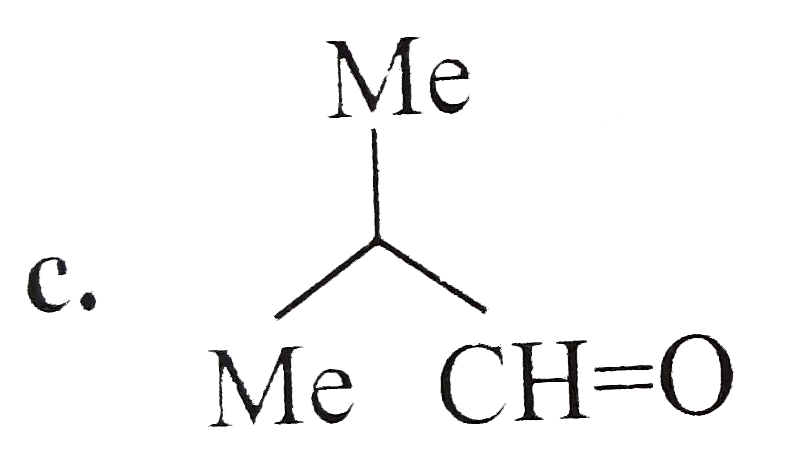
D
d.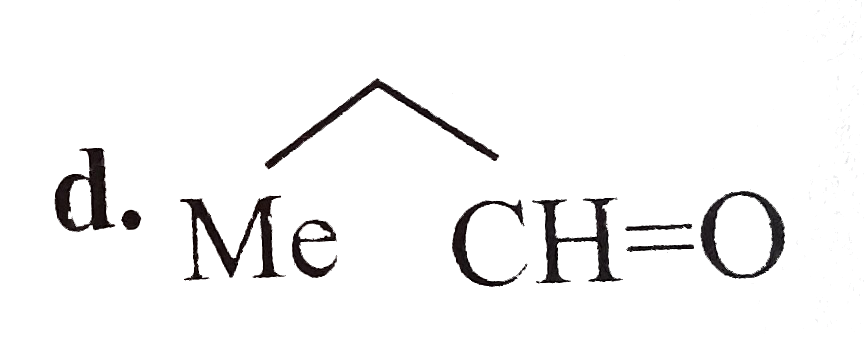
Video Solution
Text Solution
The correct Answer is:B
. It may have either two or one bond. Formation of three compounds on oxidation of (A) shows that it contains two bonds. (B) reduces ammoniacal solution and gives iodoform test.
Therefore, (B) is an aldehyde and it is (two-C-atom aldehyde).
(C ) is a ketone containing group (since it gives iodoform test).
(D) is two-C dibasic acid since it gives , and with conc. . So, (D) may be oxalic acid (two C atoms). Total C atoms in (C ) must be four.
Structure of
Structure of (A)
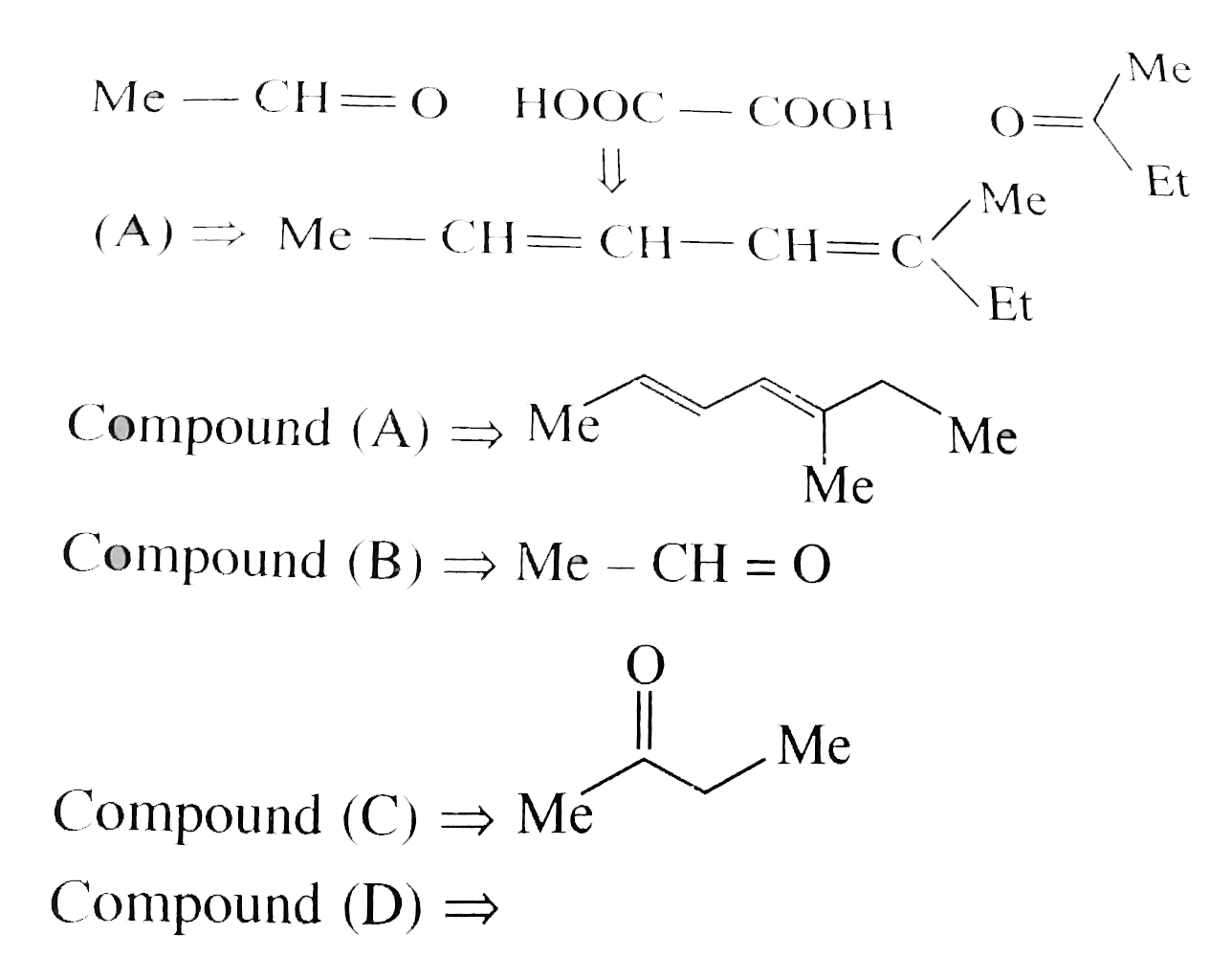
Compound (D)
|
Updated on:21/07/2023
Related Playlists
- BOOK - CENGAGE CHEMISTRYCHAPTER - REDUCTION AND OXIDATION REACTION OF ORGANIC COMPOUNDSEXERCISE - Exercise (Multiple Correct)35videos
REDUCTION AND OXIDATION REACTION OF ORGANIC COMPOUNDS
- BOOK - CENGAGE CHEMISTRYCHAPTER - REDUCTION AND OXIDATION REACTION OF ORGANIC COMPOUNDSEXERCISE - Exercise (Single Correct)90videos
REDUCTION AND OXIDATION REACTION OF ORGANIC COMPOUNDS
- BOOK - CENGAGE CHEMISTRYCHAPTER - REDUCTION AND OXIDATION REACTION OF ORGANIC COMPOUNDSEXERCISE - Exercise11videos
REDUCTION AND OXIDATION REACTION OF ORGANIC COMPOUNDS
- BOOK - CENGAGE CHEMISTRYCHAPTER - QUALITATIVE INORGANIC SALT ANALYSISEXERCISE - Viva Voce Questions And Part-C (Analysis Of Cations)42videos
QUALITATIVE INORGANIC SALT ANALYSIS
- BOOK - CENGAGE CHEMISTRYCHAPTER - SOLID STATEEXERCISE - Ex 1.2 (Objective)9videos
SOLID STATE
Knowledge Check
- Question 1 - Select One
(A)(C8H14)[O]−−−−−−−−→AccKMnO4(B)+(C)+(D)
(A) requires 2mol of H2 for its saturation.
(B) reduces ammoniacal AgNO3 and gives yellow colour with NaOH+I2.
(C ) does not reduce Tollens reagent but gives iodoform test.
(D) on dehydration with conc. H2SO4 gives a mixture of colourless gases.
The mixture of colourless gases is:Aa.CO2Bb.COCc.CO2+CODd.CO2+CO+H2O - Question 1 - Select One
(A)(C9H12O)[O]−−−−−−−−→HotKMnO4PhCOOH
i. (A) does not decolourise Br2 in CCl4, reacts with Na to give a colourless and odourless gas (B).
ii. (A) does not give iodoform test.
iii. (A) is a chiral compound and oxidation of (A) with CrO3/Py gives a chiral compound (C ).
iv. The colour of Cr2O2−7 change to blue-green when added to compound (A).
The colourless and odourless gas (B) is:Aa.COBb.CO2Cc.H2Dd.H2O - Question 1 - Select One
(A)(C9H12O)[O]−−−−−−−−→HotKMnO4PhCOOH
i. (A) does not decolourise Br2 in CCl4, reacts with Na to give a colourless and odourless gas (B).
ii. (A) does not give iodoform test.
iii. (A) is a chiral compound and oxidation of (A) with CrO3/Py gives a chiral compound (C ).
iv. The colour of Cr2O2−7 change to blue-green when added to compound (A).
The compound (C ) is:Aa.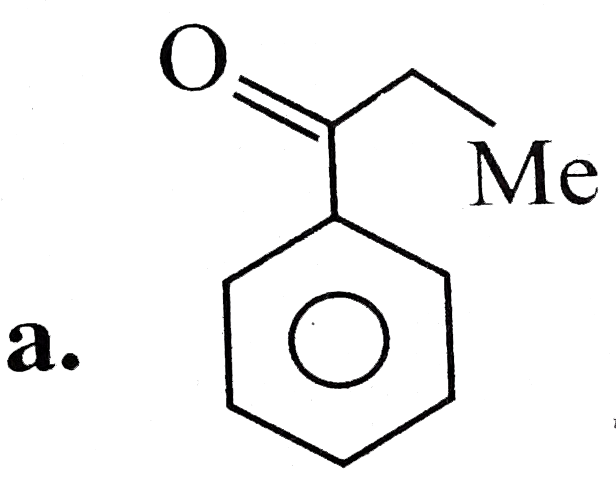 Bb.
Bb.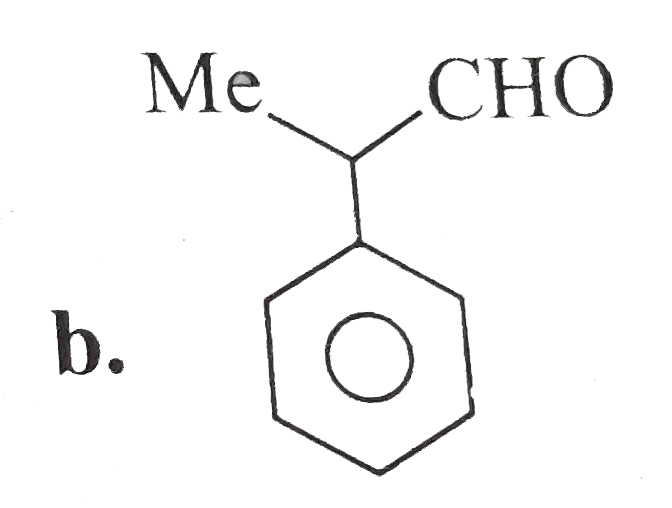 Cc.
Cc.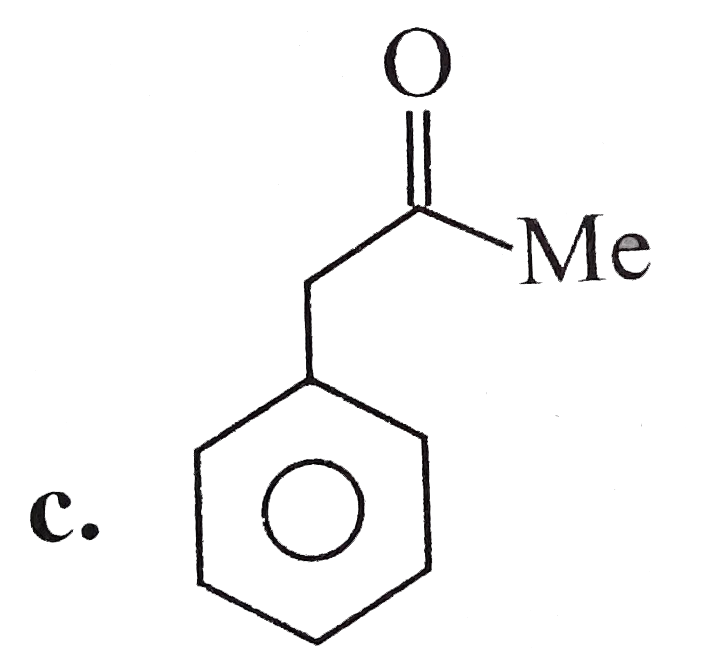 Dd.
Dd.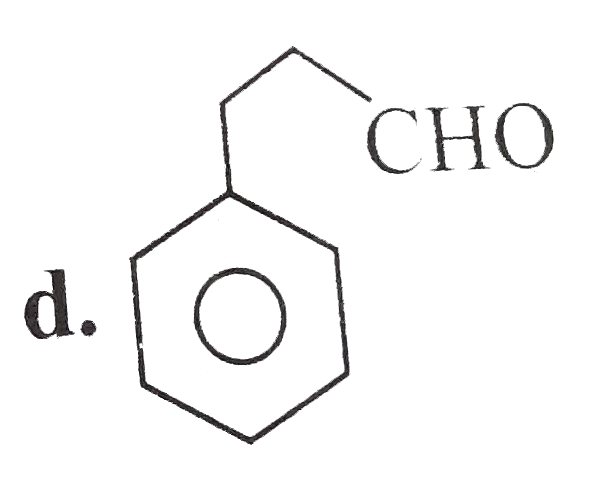
- Question 1 - Select One
(A)(C9H12O)[O]−−−−−−−−→HotKMnO4PhCOOH
i. (A) does not decolourise Br2 in CCl4, reacts with Na to give a colourless and odourless gas (B).
ii. (A) does not give iodoform test.
iii. (A) is a chiral compound and oxidation of (A) with CrO3/Py gives a chiral compound (C ).
iv. The colour of Cr2O2−7 change to blue-green when added to compound (A).
The structure of compound (A) is:Aa.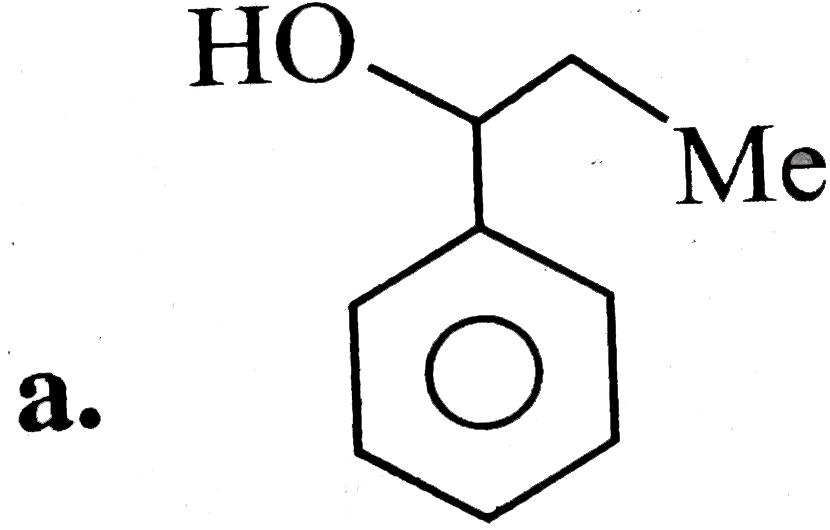 Bb.
Bb.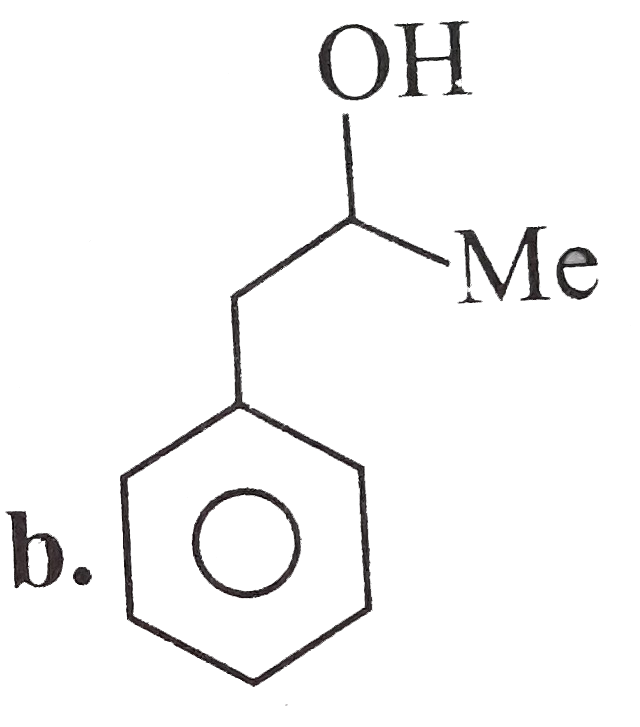 Cc.
Cc.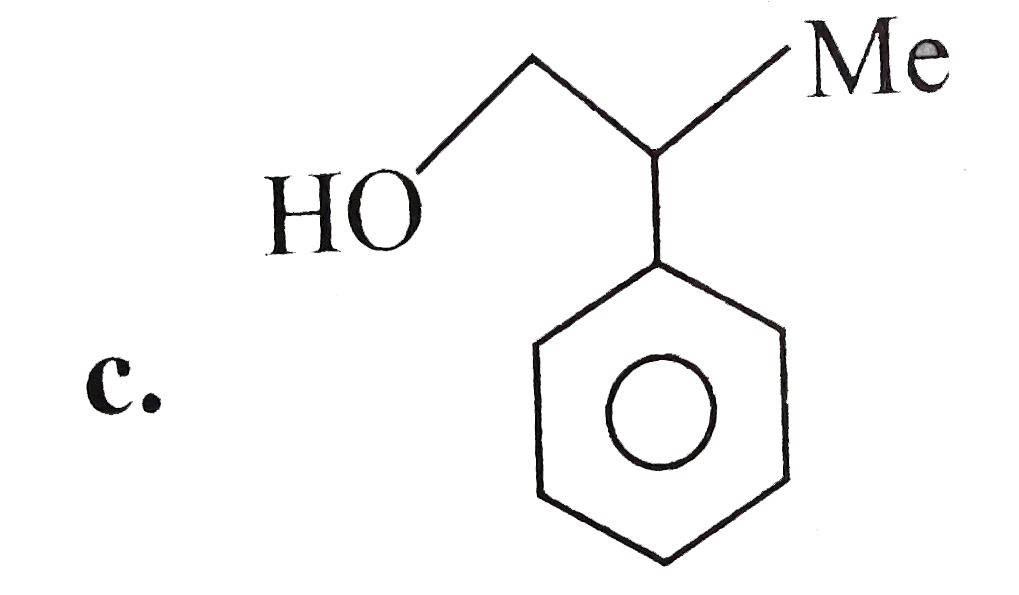 Dd.
Dd.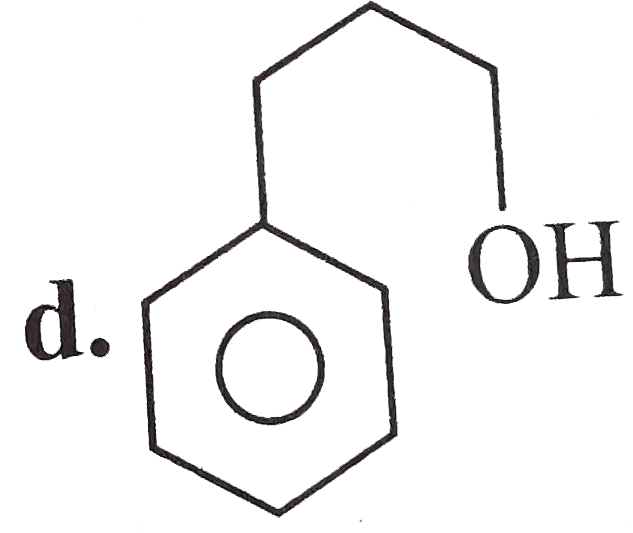
- Question 1 - Select One
(A)(C9H12O)[O]−−−−−−−−→HotKMnO4PhCOOH
i. (A) does not decolourise Br2 in CCl4, reacts with Na to give a colourless and odourless gas (B).
ii. (A) does not give iodoform test.
iii. (A) is a chiral compound and oxidation of (A) with CrO3/Py gives a chiral compound (C ).
iv. The colour of Cr2O2−7 change to blue-green when added to compound (A).
The colour of Cr2O2−7 changes from orange to blue-green when added to compound (A). The blue-green colour is due to the formation of:Aa.Cr2+Bb.Cr3+Cc.CrO2−4Dd.CrO5 - Question 1 - Select One
(A) A(C7H14)O3/Red−−−−→B(C3H6O)+C
(B) Gives positive Tollens test but negative iodform test.
(C ) Give negative Tollens test but positive iodoform test.
The compound (B) is:Aa.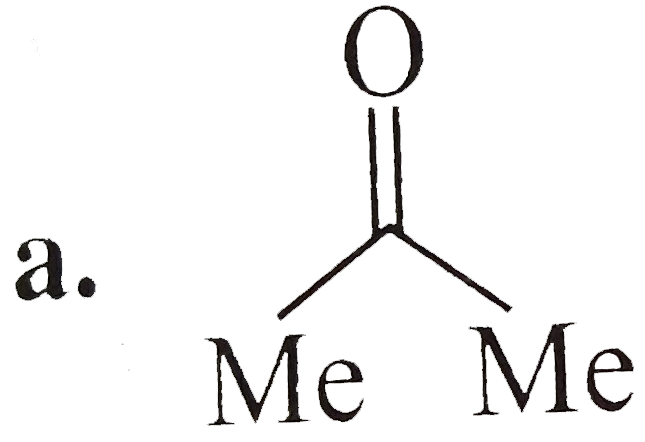 Bb.
Bb.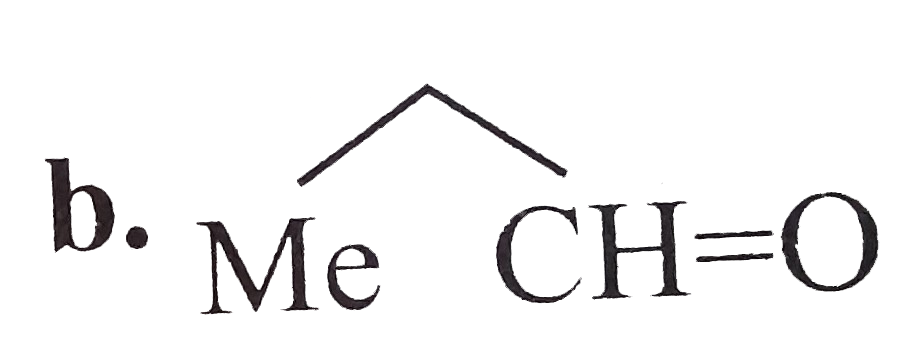 Cc.
Cc. Dd.Both (b) and (c)
Dd.Both (b) and (c) - Question 1 - Select One
(A) A(C7H14)O3/Red−−−−→B(C3H6O)+C
(B) Gives positive Tollens test but negative iodform test.
(C ) Give negative Tollens test but positive iodoform test.
The compound (A) is:Aa.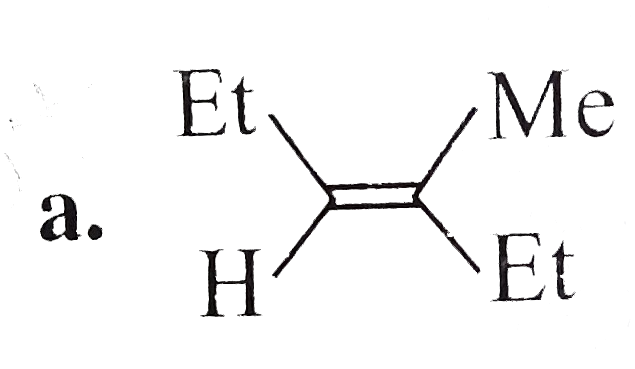 Bb.
Bb.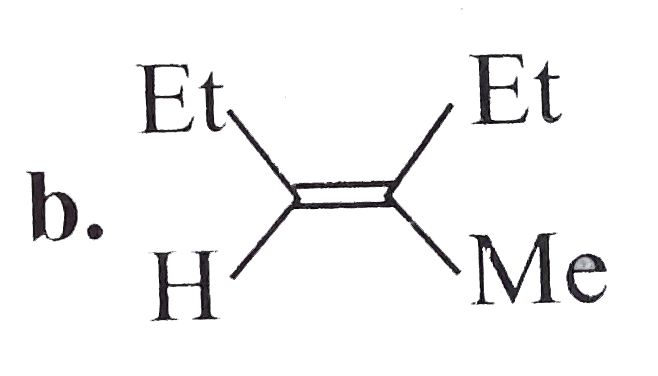 Cc.
Cc.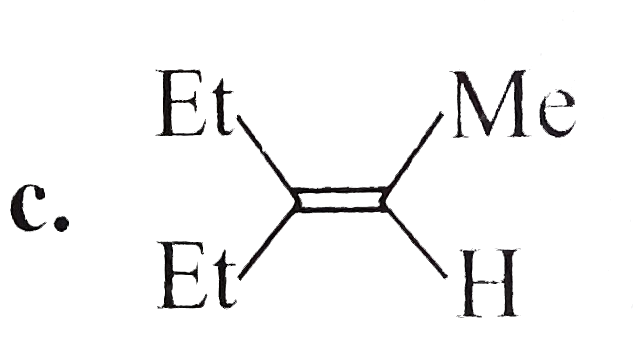 Dd.Both (a) and (b)
Dd.Both (a) and (b) - Question 1 - Select One
A substance C4H10O yields on oxidation a compound C4H8O which gives an oxime and a positive iodoform test. The original substance on treatment with conc. H2SO4 gives C4H8, The structure of the compound is
ACH3CH2CH2OHBCH3CH(OH)CH2CH3C(CH3)COCHDCH3CH2−OCH2CH3 - Question 1 - Select One
A substance C4H10O yields on oxidation a compound C4H8O which gives an oxime and a positive iodoform test. The original substance on treatment with conc. H2SO4 gives C4H8, The structure of the compound is
ACH3CH2CH2CH2OHBCH3CHOHCH2CH3C(CH3)3COHDCH3CH2−O−CH2CH3 - Question 1 - Select One
A substance C4H10O yields on oxidation a compound C4H8O which gives an oxime and a positive iodoform test. The original substance on treatment with conc. H2SO4 gives C4H8 . The structure of the compound is
ACH3CH2CH2CH2OHBCH3Ch(OH)CH2CH3C(CH3)3COHDCH3CH2−O−CH2CH3

